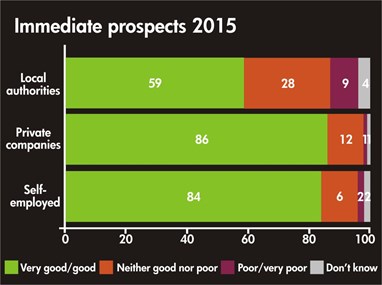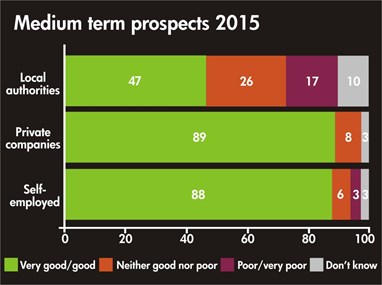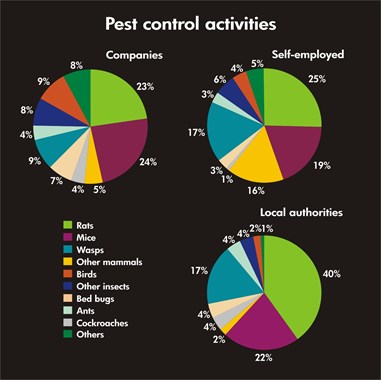Looks like the recession may be over for many pest professionals. 96% of those working in private sector pest control companies and 94% of self-employed pest controllers participating in the 2015 BASF/Pest National UK Pest Management Survey reported that profits were satisfactory or better. Indeed, 50% reported that profits were up compared with just 37% of private companies and a mere quarter of the self-employed in the previous years survey.
So the green shoots we saw in the 2014 survey have borne fruit, in the private sector at least. But what of local authorities? With no profitability measure available, it is harder to assess their position.
|
Immediate prospects looking good In the private sector, pest control companies have always been extremely bullish about their prospects for the coming year and 2015 was no exception. 86% see prospects as ‘good’ or ‘very good’ with just 1% predicting trouble ahead. Historically the survey has shown that the self-employed’s expectations fall somewhere between the private companies and local authorities but not this time. In the 2015 survey self-employed pest controllers are as optimistic as the private companies. 84% are in the ‘good’ or ‘very good’ camp and just 2% expect things to get worse. Medium term extremely good for some The picture is much more mixed in local authorities. Here 17% see prospects as ‘poor’ or ‘very poor’ and 10% don’t know so that’s approaching a third who are very uncertain about the future. Pest control activities |

|
|
| The results are shown in the pie charts (above). Comparing these to the figures from 2012, the last time this questions was asked, the picture has remained pretty constant. The only discernible changes are that all three groups have seen a decline in wasp work – no doubt a reflection of the recent poor wasp years and that the self-employed now spend almost as much time (16%) dealing with other mammals – rabbits foxes, moles etc – as they do in tackling wasps (17%).
When asked which activities had increased, which had remained the same and which had decreased, a different picture emerges. Subtracting the number who said a pest activity had decreased from those who said it had increased, produces a net increase figure. In previous years it has always been bed bugs that topped this chart but, this time, rats and mice showed the biggest net increases. These were followed by other mammals and bed bugs. Good turn out To read a fuller report on the findings from 2015 National UK Pest Management Survey is included in Issue 39: June & July of Pest magazine.
|
||




